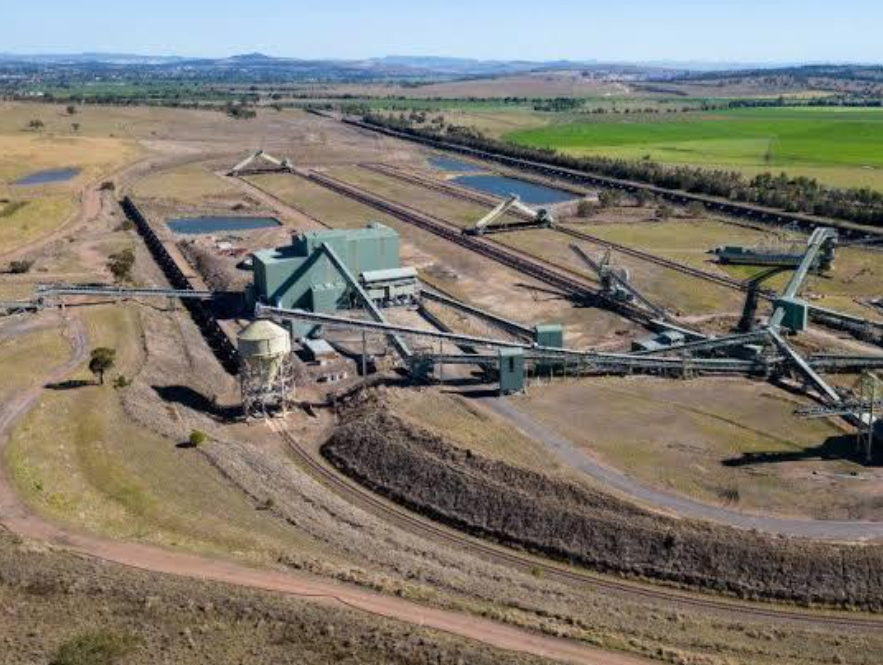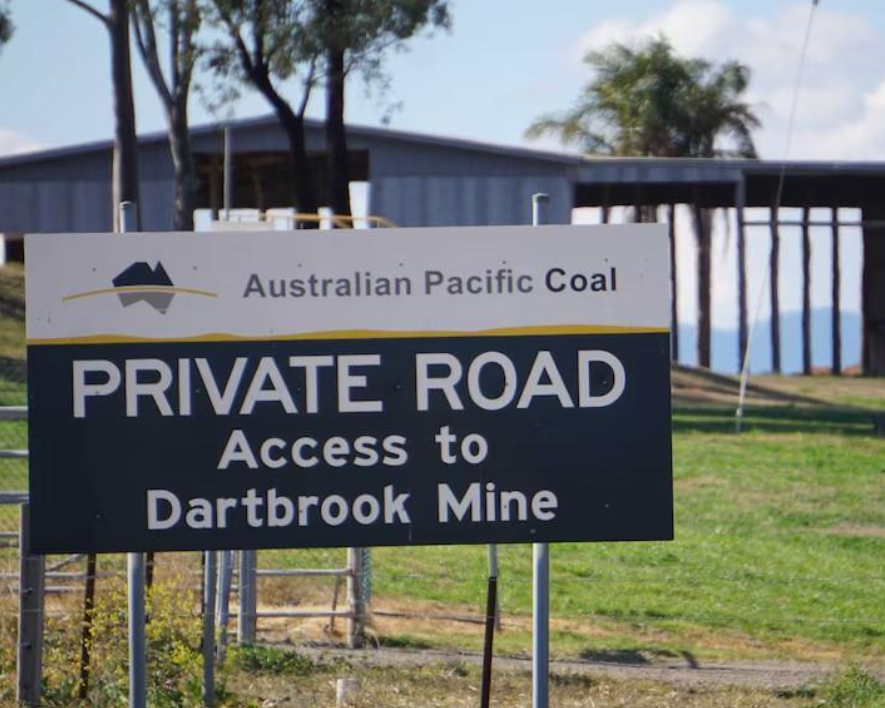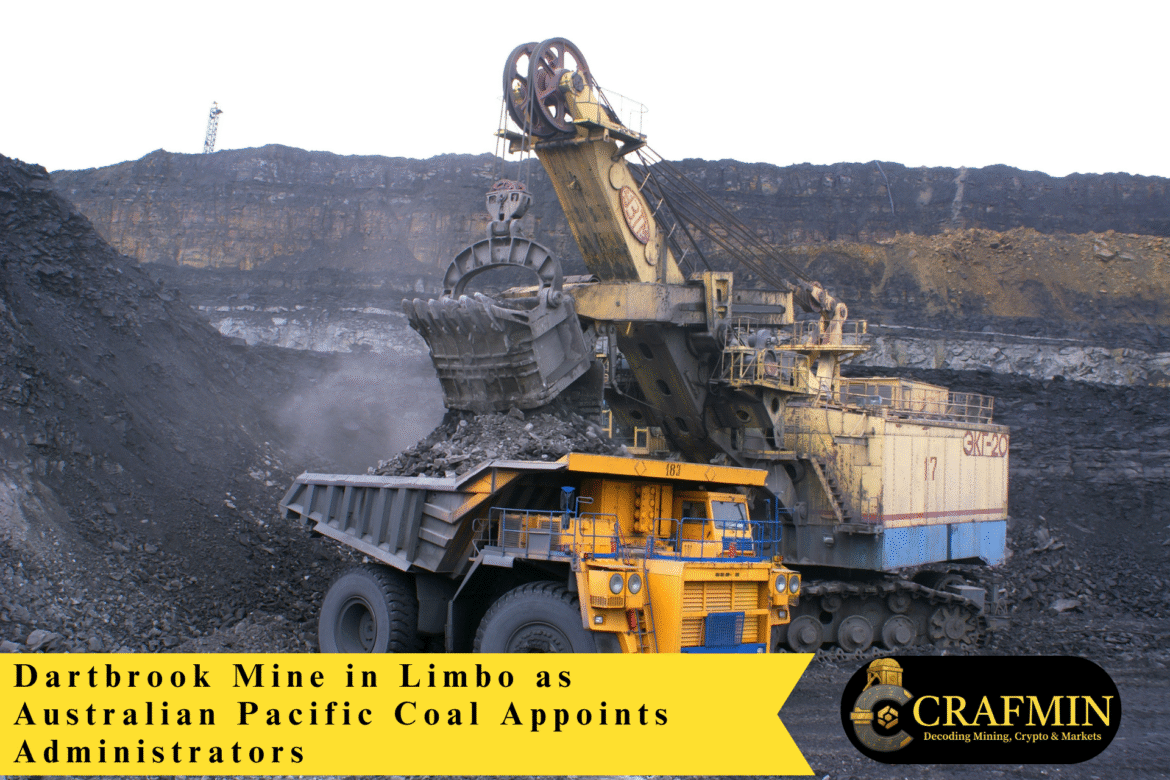
Credit: ASX
In a dramatic turn of events in the Hunter Valley coalfields of New South Wales, Australian Pacific Coal (ASX: AQC) has called in administrators while the focus swings back to its long-stalled Dartbrook thermal coal project. The decision, which appoints Deloitte Turnaround & Restructuring as administrators, came late Tuesday and has sent a shudder through an already battered market for thermal coal.
A key part of the problem: The company has debts piling up, stalled transactions and a critical mine that’s still in limbo.
A High-Stakes Project Stalls
On the outskirts of Aberdeen, in the Upper Hunter, Dartbrook was once viewed as a potential success story — a strategy to mine value from an underground asset that had been sitting idle in a region still dotted with coal seams. The mine has been in care and maintenance since 2006, but several attempts to bring it back into production have been stalled by delays, regulatory wrangling and ownership disputes.
The most recent restart plan was driven by a deal struck between AQC and Tetra Resources, a private mining group poised to take a controlling interest in Dartbrook. But that transaction — involving a share transfer and cash investment — has been hanging in the air for months. With no completed deal and no revenue from operations, AQC’s financial health continued to deteriorate.
Mounting Debt and Vitol Asia’s Involvement

Credit: ABC News: Eliza Goetze
Vitol Asia, a commodities trading house that had extended a funding facility to AQC, seems to be the one compelling the company to appoint administrators. Reportedly, the almost A$ 60 million debt facility was set to be paid back in a scaled repayment structure beginning in mid-2025. AQC, however, was receiving no significant revenue from Dartbrook, and costs were only increasing, leading them to default on the facility’s repayment terms.
Industry insiders have corroborated that due to the default, receivers may be appointed over the company’s holding shares in Dartbrook. This makes matters worse for the asset’s future, as the entire receivership process would likely derail any active discussions with Tetra Resources.
Where Tetra Resources Stands Now
Tetra was looking to acquire Dartbrook and start coal production almost immediately. Their proposition was an upfront cash amount, alongside an equity stake in the overhauled project, and a staged reactivation plan which would aim to start production in late 2025. AQC’s administration, however, places the underwritten deal terms into further ambiguity.
Deloitte’s team has indicated that they will review the transaction to determine its commercial viability and whether it serves the interest of creditors — most notably Vitol and existing AQC shareholders. Industry watchers say that Tetra may now have to renegotiate or risk being pushed aside entirely if a better offer emerges during the administration process.
Timeline Snapshot
| Event | Date |
| AQC signs deal with Tetra | March 2024 |
| Vitol loan matures (first tranche) | June 2025 (expected) |
| Voluntary administration begins | July 2025 |
| Deloitte takes control | 2 July 2025 |
The effect here on the ground: We’re on Lookout
The future of Dartbrook will raise questions over the Hunter Valley workforce, local suppliers and broader coal infrastructure. Although the mine has not been producing for over 10 years, the prospect of its reopening sustained backdoor work in logistics, planning and contracting.”
One Upper Hunter council official averred ‘a number of planning proposals and local infrastructure schemes were aligned’ to fund the restart at Dartbrook. That activity is now suspended or under threat.
Regulatory Oversight and Possible Outcomes
The NSW Resources Regulator has previously approved mining lease extensions for Dartbrook, but any shift in ownership or structure is likely to need fresh approvals. Deloitte also acquires administration rights to bring the company back — like selling assets, renegotiating joint ventures or a complete recapitalisation.
Should Vitol use its security rights and proceed with the appointment of receivers, Dartbrook could be turned into a forced asset sale — something that would attract the attention of large mining houses or private equity groups keen to get exposure to coal, despite global pressure to decarbonise.
What It Means for the Thermal Coal Market
While thermal coal prices have cooled from 2022 highs, demand from Southeast Asia and India is strong. Dartbrook’s mooted production of 3.5 million tonnes per annum would provide meaningful tonnage to the region’s export slate — if it ever resumes operation.
For now, though, the project is at an impasse, with its ownership and financing arrangements mired in legal and financial controversy.

